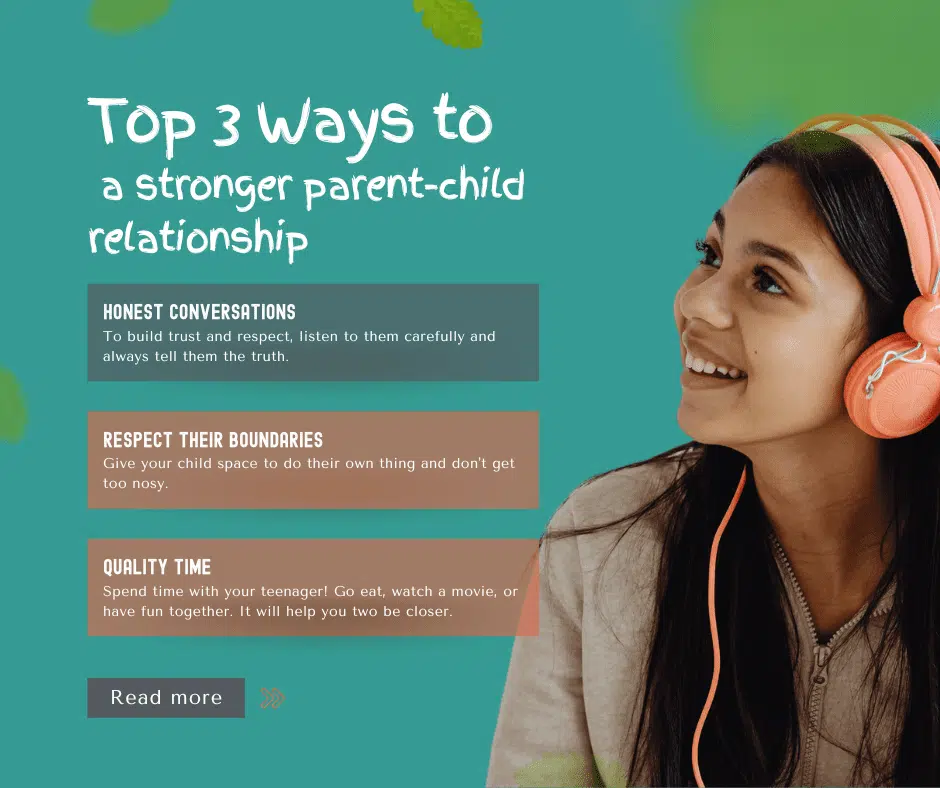Updated on February 25, 2023
You’ve probably heard the phrase “acting out” during conversations about parent-teen conflict. For example, “Aiden acted out for a while when I told him he couldn’t stay out until 3 am”, or “Amber decided to act out after I grounded her for not doing her chores.”
But what does acting out mean?
Does teen acting out indicate a bigger problem aggravating parent teen relationships?
Signs Your Teen is Acting Out
When children or teenagers throw a fit, scream, melt down, become physically or verbally aggressive, or break things, adolescent psychologists call this behavior “acting out.” Instead of coping rationally with something that has made them feel overwhelmingly anxious, angry, and unable to communicate their emotions, kids will act out to relieve the unbearable tension within them.
Acting out is also a way to indirectly disclose thoughts and feelings they are afraid to describe or admit.
Acting out isn’t always associated with normal adolescent behavior problems or simply attributed to bad behavior. Instead, acting out may be a psychological mechanism used by a teen who is hiding intense feelings of fear, pain, and low self-esteem.
How to Talk to a Teenager in Trouble
When situations arise involving your child acting out, remember to remind yourself that something more than being grounded for a few days is likely upsetting your teen. Getting to the root cause of acting out is much more important than focusing on just the bad behavior itself.

3 Strategies for Dealing with a Teenager Who is Acting Out
Ask the simplest of questions in a quiet, calm way: “Is something bothering you that you would like to talk about? Maybe I can help you figure out what to do to resolve it” when the meltdown doesn’t match the context of the situation.
Letting your teen know you genuinely care enough about what is really upsetting him often opens the floodgates. All a teen acting out usually wants is attention from a loving parent.
1. Don’t Dominate Your Teen
Resist the urge to control a volatile situation. Instead, focus on connecting with your teenager by telling them you will always be there for them unconditionally, no matter what is troubling them.
Validate their confusion, anger, anxiety, sadness–whatever emotion seems to be influencing their behavior–by letting them talk without interrupting them. Although your child’s problems may seem trivial or easily resolvable to you, remember you are interacting with an adolescent who is undergoing tremendous physical and mental changes.
2. Teen Discipline Should be Consistent Discipline
No matter how many acting out episodes your teen has over time, remain consistent with your feedback and disciplinary approach to your child’s behavior. Reacting differently to a teenager’s meltdowns does not establish boundaries they want and need to frame their behavior. Without cultivation and consistency, parent teen relationships will inevitably deteriorate and will likely worsen a teen’s bad behavior.
Effective boundaries include making sure your teen knows the ground rules that everyone is expected to abide by in the home. Rules should be reasonable, fair, and consistently upheld without exception.
For example, if your teen has a curfew of midnight and comes home at 12:30 am with excuses for being late, don’t accept the excuses. If you do, your teen will try the “late excuses” behavior again and again.
3. Consider the Motivation
Once you discover what is actually causing your child’s outbursts, you now have an insightful understanding of what motivates your teen. Figuring out how to respond to and address your teen’s emotional needs is much easier and often leads to positive reinforcement of your relationship with your child. Even if you learn the motivation for your teen to act out seems trivial to you, realize that it isn’t trivial to your developing teenager.
"Motivation is like food for the brain. You cannot get enough in one sitting. It needs continual and regular top-ups."
- Peter Davies
When Adolescent Behavior Problems Require Professional Help
Parent-teen communication regarding substance abuse, tech addiction in teens, criminal activity, or physical aggression toward others may need professional intervention with an adolescent psychologist.
In some cases, a teen acting out could have a mental health problem such as ADHD, bipolar disorder, oppositional defiant disorder, or personality disorder.
If you think something else is causing your child’s outbursts, seek help from a therapist to determine if your teen needs mental illness treatment. Counseling and behavioral therapies can make all the difference in alleviating parent teen conflict when something more than typical teenage rebellion extends beyond normal and expected adolescent conduct.
Who do you call when your teenager is out of control?
When your teenager is out of control, it can be an overwhelming and frightening experience. Many professionals and organizations specialize in helping parents and teens during an emotional crisis, including rehabilitation centers, therapeutic boarding schools, and residential treatment centers for those experiencing mental illness.
For more information about how to help a teenager who is out of control or acting out, don’t hesitate to contact us today.



















